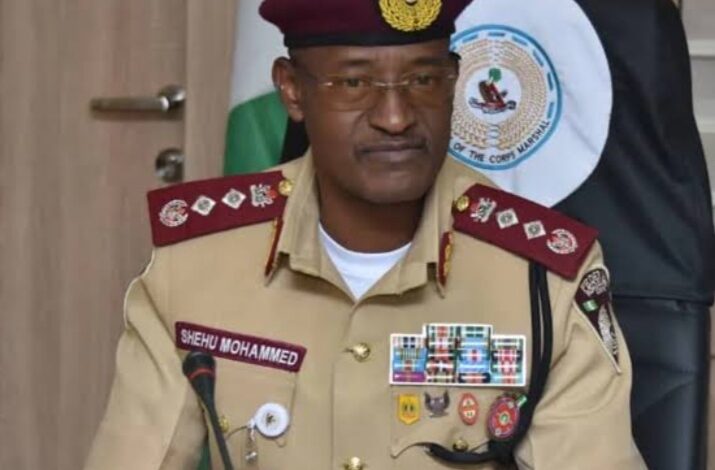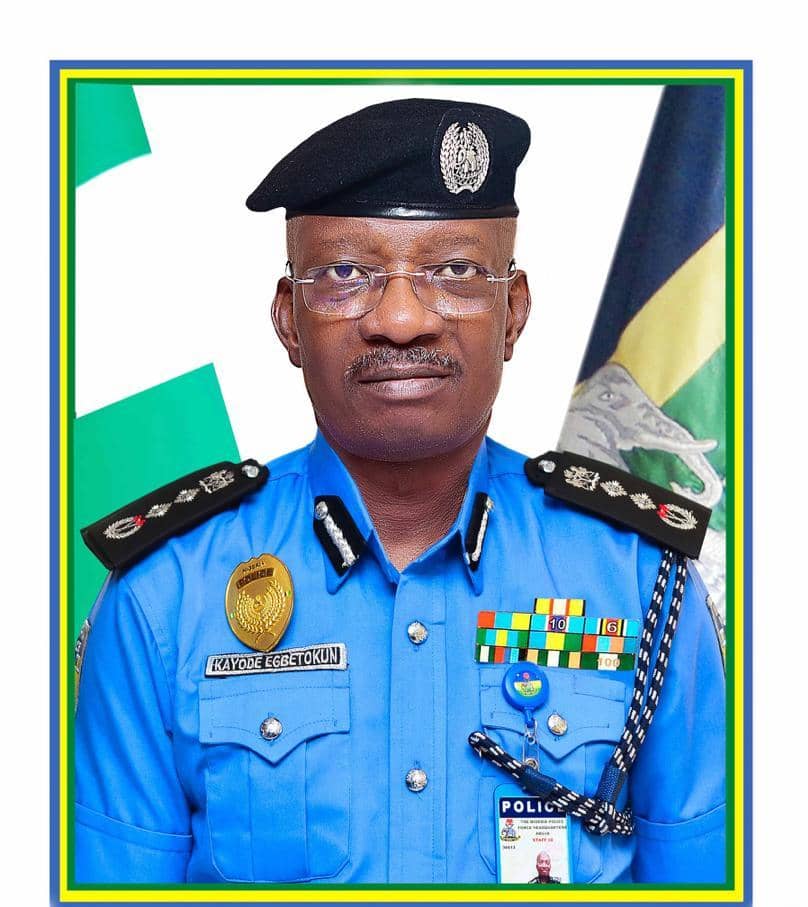
Road traffic crashes are among the leading causes of death, disability and property loss worldwide, with Low and Middle Income Countries (LMICs) accounting for 13% of these deaths, despite having 1% of the world’s registered vehicles.
Recent economic growth has resulted in an unplanned increase in motorized vehicles using largely inadequate infrastructure not designed to deal with the increased traffic demands. In addition, public transport systems are generally underdeveloped and financial and human resources for effective road traffic and safety management are inadequate.
In Nigeria road transport is a primary means of transportation as it accounts for an estimated 80% of all traffic according to the National Bureau of Statistics. The public transport system, where such vehicles as buses, taxis, auto rickshaws and motorcycles are commonly used, is neither well developed nor organised. Most of the vehicles are often not roadworthy and increase traffic volume on highways causing congestion, crashes and other related externalities. Nigeria’s road traffic fatality rate remains among the highest compared to the world average of 18.2. This is despite having one of a few outstanding recognized and dedicated lead road safety agencies in sub-saharan Africa.
The Federal Road Safety Corps (FRSC) was established on February 18, 1988, as a lead agency in road safety management, with the mandate to coordinate road safety administration and traffic management in Nigeria via decree no 45 of 1988 as amended by decree no 35 of 1992, later codified as FRSC Act (CAP 141) Laws of the Federation 1990 and FRSC Act CAP F19, LFN, 2004; FRSC (Establishment) Act, 2007.
The organisation was specifically established and empowered by legislation to coordinate road safety administration and traffic management in Nigeria with the ultimate aim of halting the trend of road traffic crashes and fatalities on all roads (204,000km) in the country, and its laws and regulations can be exercised in any part of the country. This establishment conformed with the lead agency concept recommended by the United Nations and World Health Organisation that member nations should dedicate an agency of government to lead in coordinating road safety management as a best practice to combat the scourge of death and injuries from Road Traffic Crash (RTC).
Prior to the establishment of the commission, the high rate of road traffic crashes in Nigeria was said to have increased due to population growth, economic boom, and more people owning motor vehicles. A glance at crash trends before FRSC reveals that road traffic crashes peaked at 40,881. In 1967, 38.9% of deaths were due to road traffic crashes, which increased to 60.2% in 1974. From independence until 1988, Nigeria had an average of 66 casualties per day. Little wonder then that the World Health Organization had adjudged Nigeria, the second after Ethiopia, as the most dangerous country in the world to drive a motor vehicle.
Consequently, the major goal of the founding fathers was for the corps to become a world-class organisation that would fulfil its primary purpose of existence and align itself towards realising all UN resolutions on the reduction of deaths and injuries on the roads and making Nigerian roads one of the safest in the world.
So, how has the Corps fared in this regard?
The Corps has had a significant positive impact on road safety in Nigeria, primarily by enforcing traffic laws, conducting public awareness campaigns, and implementing road safety education programs, which have resulted in a noticeable reduction in road accidents across the country; studies have shown a significant decrease in road traffic crashes since the establishment of the FRSC, aligning with their mission to minimize accidents on Nigerian roads.
According to retired Deputy Corps Marshal,Training and former FRSC spokesman, Bisi Kazeem, the corps has now come of age after going through good times and tides. In its 37-year journey, it recorded a commendable 62.4 per cent reduction in crashes from 40,881 in 1976 to 25,792 within its first operational year alone. The corps has doggedly fought RTC from the unacceptable 40,881 of 1976 down to 9,570 in 2024 signifying a 76 per cent reduction in road traffic crashes in its 37 years of existence, a testament to the fact that the corps is gaining ground.
Kazeem states that the corps achieved these feats by developing transformational initiatives focused on people, processes and technology. As a result, today not only does its staff pride itself as the most disciplined, but the corps stands as the best information technology-driven organisation in Nigeria with its robust database and over 95 percent digitized administrative and operational procedures.
A cursory look at some of the key milestones and achievements of the Corps reveals the Corps’ determination in creating a safe motoring environment, and reducing road fatalities and crashes.
Expansion
The corps has witnessed tremendous expansion in these 37 years rising from its hitherto few command structures to having representation in all the 774 local government areas of the federation. Presently, the Corps boasts of 12 Zonal Commands, 37 Sector Commands, 244 Unit Commands, 61 Out Posts, FRSC Academy, FRSC Training Schools, FRSC Staff College, 230 Drivers License Centres/Work Stations, 3 Signage Plants, 1 National Driver License Print Firm, 59 Emergency Ambulance Points (ZEBRAs), and 24 Staff Clinics.
Road Safety Management
The FRSC has done a good job in managing road safety by formulating and implementing policies, programmes and schemes to fight road traffic crashes to extinction. It introduced the verification portal for driver licences and number plates, the Road Transport Safety Standardisation Scheme for uniformity and harmonisation of fleet operators in the country, and the Driving School Standardisation Scheme. It also introduced the speed limiting device whose enforcement began on February 1, 2017, and the vehicle tracking system, among others.
Educating drivers and the public on how to use the highways safely is another way the Corps manages road safety, and this it has done by pursuing an aggressive public enlightenment programme. The FRSC management has strengthened the functionality of the National Traffic Radio 107.1 FM, established in October 2019 as a medium for educating mass members of the public on traffic matters and updating them on road conditions across the country. The corps further introduced a massive capacity development scheme by training over 3,000 personnel in the first six months of his administration.
Furthermore, the introduction of the toll-free 122 emergency number and a 24-hour call centre established to reduce response time for crash victims is a single step that has reduced emergency response time from 50 minutes to 15 minutes, thereby decreasing the number of fatalities in crash situations. The FRSC also clears obstructions from highways and removes broken down vehicles.
Also, as one of the nation’s custodians of critical data infrastructure, the corps has successfully strengthened inter-agency cooperation with relevant stakeholders, such as the National Identity Management Commission, National Bureau of Statistics, Nigerian Customs Service, and banks with evident success in inter-agency collaboration and harmonisation of data for national development.
IT Deployment
The FRSC has, in recent times under its present leadership, witnessed a tremendous push in the deployment of information technology in the workplace. As a proactive measure, the corps through its information and communication office embarked on a wide range of projects, many of which have been completed to drive safety initiatives by leveraging qualitative inputs inherent in relevant software and computer-related programmes. Part of these initiatives is the introduction of an Electronic Document Management System employed to enhance the efficiency and effectiveness of documents and file management in the corps; revamping the FRSC e-Dashboard portal for improved data accuracy and reportage; introduction of the National Crash Reporting Information System; development of FRSC staff post-service scheme mobile and web application; deployment of the penalty point based system to enhance traffic law enforcement; upgrade of e-ticketing application for effective implementation of point based system as well as introduction of national vehicle information inventory management system.
Kazeem avers that on the global scene, FRSC takes the leadership role of the West African Road Safety Organisation as part of measures to scale up the bar on road safety management within the West African region. Further to this, the corps has provided technical assistance to Sierra Leone, Liberia, Ethiopia, and so on. It has secured the implementation of a policy robust engagement with international organisations for capacity building, including the World Bank project on the Safe Corridor Project, etc.
“Apart from succeeding in securing the endorsement of the National Road Safety Strategy in 2016, FRSC made Nigeria the first African country to be admitted into the International Traffic Safety Data Analysis Group. It is also the first African country to accede to six United Nations Conventions on road safety. This is to align with global best practices and domesticate the standards.
“These efforts have given the organisation awards both national and international, especially during a workshop under the auspices of the United Nations Economic Commission for Africa in Addis Ababa, Ethiopia, where the FRSC was adjudged the best lead agency on road safety management in Africa”, he says, adding with pride that FRSC is currently the only law enforcement organisation in Nigeria certified by the International Standards Organisation.
No doubt, these achievements attest to the Corps’ commitment to improving road safety in Nigeria, and its efforts have had a positive impact on the lives of millions of Nigerians.
Despite its laudable achievements however, there is still much to be desired as the FRSC faces several challenges and shortcomings, which contribute to undermining its effectiveness.
Lack of funding, poor road design and maintenance of existing roads and inadequate infrastructure increases the risk of road traffic injuries while the poor state of Nigerian roads is attributed to bureaucracy and
inattention to preventive maintenance projects. Also, the infrastructural needs of pedestrians and cyclists are not considered in road designs, and little or no effort is made to separate the motorized from the non-motorized as different categories of road users share the same road space. Some pedestrian bridges can be seen in some parts of the country but most of them are under utilized because they were poorly designed and not sited in the appropriate places. However though, even when provided in the appropriate places pedestrians do not make use of them appropriately. In fact, they avoid using them and have turned them to market sites. These are also security concerns on the use of bridges at night as there have been reports and complaints about rape and robbery.
As the body primarily concerned with implementing road safety programs in the country, FRSC collaborates with other agencies and ministries to evaluate current procedures needed to generate information that forms the core of its programs of enhancing road safety. Despite this, lack of timely implementation which could be because of improper coordination between the various agencies reduces the effectiveness of some projects. Therefore there should be more collaboration and harmonization between the agencies and government ministries. Some activities performed by different agencies and ministries appear to overlap resulting in conflicts.
Behavioral problems on the part of road users is also something the Corps should look into and address. Different categories of road users are involved in behaviors which are unsafe for them and others. These include speeding, driving under the influence of alcohol and drugs and poor vehicle standard and maintenance among others. Drivers need to know the different speed limits on different routes but it is rather unfortunate that speed limits are rarely posted, so drivers may not even know when they are going above the limit. Drivers prefer to go through various shortcuts to boycott scheduled vehicle maintenance and it is a known fact that it is possible to get a vehicle licence without proper checks. A study in Nigeria found that illiteracy was one of the major factors in commercial drivers not being exposed to safe driving campaigns.
There is a general concern that law enforcement is not as strict as it should be probably because of discrimination and unequal resource distribution in some parts of the country. This also applies to penalties and fines. A good case in point is the approved tonnage for our roads which is 30 tons, but trucks belonging to such companies as Dangote are above 40 tons. Who sanctions these vehicles and their companies for violating this policy? Higher status, influential drivers or drivers with relatives in top government positions are more likely to have their fines waived and avoid punishment. Generally, drivers of exotic cars are usually not stopped by road authorities for checks.
The corps enforcement powers are limited, and it often relies on other agencies, such as the police, to enforce road safety regulations. Addressing these shortcomings however will require sustained efforts from the FRSC, the Nigerian government, and other stakeholders to provide adequate funding, resources, and support.
To function better, therefore, the FRSC could consider the following strategies: Increase budget allocation; provide adequate funding to support FRSC’s operations, including personnel, equipment, and infrastructure. It should explore alternative funding sources; consider partnerships with private organisations, NGOs, and international agencies to supplement funding.
Others are: improve operational efficiency; modernise equipment and technology; upgrade communication systems, patrol vehicles, and other equipment to enhance operational efficiency; implement a robust data management system; develop a comprehensive data collection and analysis system to inform decision-making and track performance.
Furthermore, the Corps should foster stronger partnerships with other law enforcement agencies, such as the police, to enhance enforcement and coordination; enhance public engagement and education. Develop targeted public awareness campaigns to promote road safety and encourage responsible driving behaviours.
They should Implement effective sanctions and incentives; develop and enforce a system of sanctions for traffic offenders, while also recognising and rewarding safe drivers; address infrastructure challenges; advocate improved road infrastructure; collaborate with other agencies and stakeholders to prioritise road maintenance and construction projects.
They should also develop strategic partnerships with the private sector companies and NGOs to support road safety initiatives and infrastructure development; establish a robust monitoring and evaluation system; foster a culture of transparency; encourage open communication; provide regular updates on FRSC activities, and respond promptly to public inquiries and concerns.
By implementing these strategies, the FRSC can improve its effectiveness, enhance road safety, and reduce the incidence of accidents on Nigerian roads.






